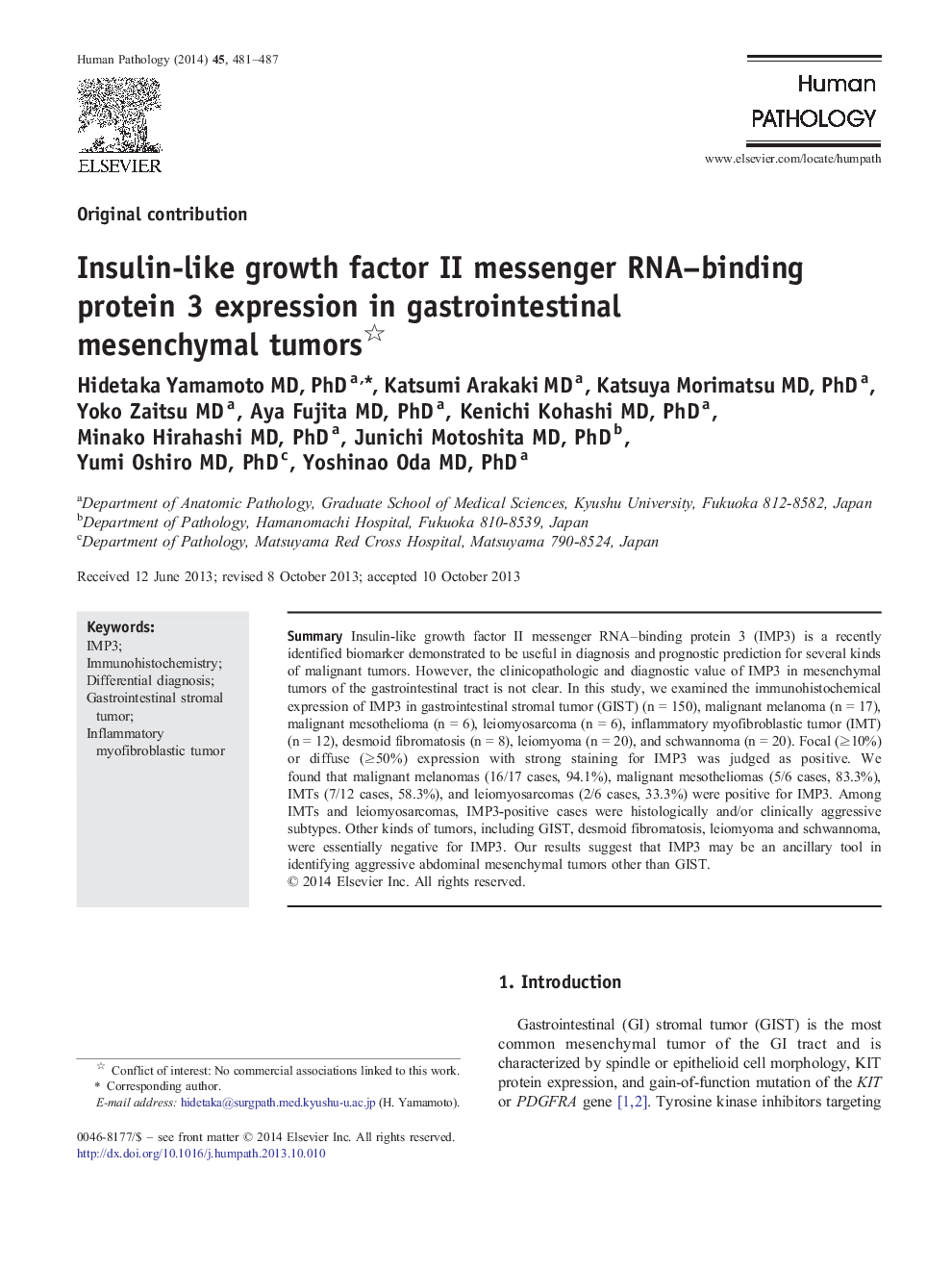| Article ID | Journal | Published Year | Pages | File Type |
|---|---|---|---|---|
| 6215921 | Human Pathology | 2014 | 7 Pages |
SummaryInsulin-like growth factor II messenger RNA-binding protein 3 (IMP3) is a recently identified biomarker demonstrated to be useful in diagnosis and prognostic prediction for several kinds of malignant tumors. However, the clinicopathologic and diagnostic value of IMP3 in mesenchymal tumors of the gastrointestinal tract is not clear. In this study, we examined the immunohistochemical expression of IMP3 in gastrointestinal stromal tumor (GIST) (n = 150), malignant melanoma (n = 17), malignant mesothelioma (n = 6), leiomyosarcoma (n = 6), inflammatory myofibroblastic tumor (IMT) (n = 12), desmoid fibromatosis (n = 8), leiomyoma (n = 20), and schwannoma (n = 20). Focal (â¥10%) or diffuse (â¥50%) expression with strong staining for IMP3 was judged as positive. We found that malignant melanomas (16/17 cases, 94.1%), malignant mesotheliomas (5/6 cases, 83.3%), IMTs (7/12 cases, 58.3%), and leiomyosarcomas (2/6 cases, 33.3%) were positive for IMP3. Among IMTs and leiomyosarcomas, IMP3-positive cases were histologically and/or clinically aggressive subtypes. Other kinds of tumors, including GIST, desmoid fibromatosis, leiomyoma and schwannoma, were essentially negative for IMP3. Our results suggest that IMP3 may be an ancillary tool in identifying aggressive abdominal mesenchymal tumors other than GIST.
